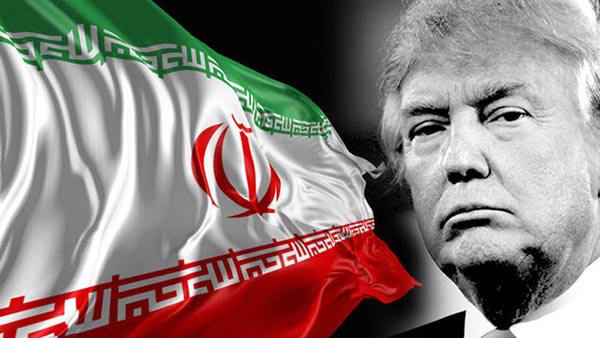Should we walk behind Trump?
Abdulrahman al-Rashed/Al Arabiya/February 16/17
Some people view agreeing with the Trump administration’s policy on Iran as walking behind a warmonger and as being dragged into dangerous adventure. This is greatly exaggerated.
Policies change based on circumstances. The new American president has decided to adopt a policy that confronts Iran’s ongoing efforts to build dominance in the region. This threatens everyone but no one said anything about launching wars or engaging in military confrontations as there is a long list of measures which they will choose from to punish Iran after the American decision maker decides what the level of confrontation is.
The president does not have to send warships to, for instance, occupy Bandar Abbas Port to put an end to the Iranians’ armament of the Houthis. It is enough for American fleets to monitor navigation activities in front of Yemeni ports to end smuggling of arms. The level of confrontation may be limited to reviving economic sanctions which do not contradict with the nuclear agreement and which former President Barack Obama lifted.
These sanctions, which the Congress approved and which were imposed at the beginning of Obama’s term, proved to be the most effective. They are less dangerous than all military operations that can be used against Tehran’s regime in the region.
Those criticizing any Arab cooperation with President Trump against Iran out of fear that he will launch a war against it can rest reassured that this war will not happen as no one has said it’s one of the options
Effective sanctions
These sanctions were so effective that Tehran had to request negotiating, and for the first time ever, it gave up its stubbornness to resume its nuclear program. The two most significant sanctions included prohibiting oil companies from investing and working in Iran and, what was more painful, preventing Iran from using the American dollar in its commercial transactions.
Those criticizing any Arab cooperation with President Trump against Iran out of fear that he will launch a war against it can rest reassured that this war will not happen as no one has said it’s one of the options. If Trump decides to launch an expanded military war against Iran, it’s normal to worry and to refuse to walk behind him. But I do not think this will happen and of course we will address different developments accordingly.
Tension may cause naval clashes or it may cause clashes in conflict zones but there are limited percentages to these possibilities. There will not be major wars with Iran. No war has erupted before and launching a war is not even part of both countries, i.e. the US and Iran’s, threats. Everyone wants to avoid reasons that may lead up to a clash and the Iranians and Americans have succeeded at doing so for decades. No one wants tensions to emerge again.
Back to basics
It is shallow to view Gulf consensus with Washington’s new stance as a wrong policy that has dangerous consequences, like some intellectuals have put it. Actually, Trump is the one who approached the policy of Gulf countries and it’s not the latter which moved in his direction. The new administration in Washington has decided to go back to the same square which Obama had left when he secretly negotiated with the Iranians.
Some critics say it’s not possible to trust the US policy and their proof to that is that the US abandoned its cooperation with the Gulf to confront Iran, like Obama did. However, this is the nature of politics and each country decides its own policy based on its interests. If the Iranian government had been serious about abandoning its use of power and giving up its policy of intervention, no one would have needed this partisanship and establishment of alliances.
Some view relations according to the analysis of Iran and its allies. When they sign reconciliation and rapprochement agreements with the West, seal deals to buy airplanes and sign oil contracts with the US, they view this as a great accomplishment that broke the siege but when other Arab countries do the exact same thing, they consider them submissive and believe they are being dragged behind foreign agendas!
**This article was first published in Asharq Al-Awsat on February 16 2017.
هل نسير خلف ترمب؟
عبد الرحمن الراشد/الشرق الأوسط/16 شباط/17
الذين يصورون التوافق مع إدارة الرئيس الأميركي دونالد ترمب، في سياسته ضد الحكومة الإيرانية، على أنه سير وراء داعية حرب، وانجرار خلف مغامرات خطيرة، فيه مبالغة شديدة. السياسات تتبدل حسب الظروف، وقد قرر الرئيس الجديد تبني سياسة تتصدى للتغول الإيراني في المنطقة الذي يهدد الجميع. ولم يتحدث أحد عن شن حروب، أو مواجهات عسكرية، بل إن هناك سلسلة طويلة من الإجراءات التي سيختار منها لمعاقبة إيران بعد أن يقرر صانع القرار الأميركي مستوى المواجهة. والرئيس ليس مضطرًا لأن يرسل بوارجه لاحتلال مثلاً ميناء بندر عباس لوقف تسليح إيران للحوثيين بحرًا. يكفيه أن يشارك أسطوله في مراقبة الملاحة قبالة الموانئ اليمنية لوقف تهريب السلاح. مستوى المواجهة قد يكفيه إحياء العقوبات الاقتصادية ذات الشأن الثنائي، ولا تتعارض مع الاتفاق النووي، والتي أوقفها الرئيس الأميركي السابق. فقد أثبتت تلك العقوبات، التي أقرها الكونغرس وطبقت في بداية عهد أوباما، أنها أعظم تأثيرًا وأقل مخاطرة من كل العمليات العسكرية في المنطقة التي يمكن أن تستخدم ضد نظام طهران. بلغت من الفعالية أنها اضطرت طهران إلى طلب التفاوض، والتراجع لأول مرة عن عنادها باستكمال مشروعها النووي. وأهم عاملين في المقاطعة كانا الحظر الذي فرضته الحكومة الأميركية على الشركات البترولية من الاستثمار والعمل في إيران. والثاني، الأكثر إيلامًا، كان منعها من استخدام الدولار في تعاملاتها التجارية.
والذين ينتقدون أي تعاون عربي مع الرئيس ترمب ضد إيران، خشية أن يشن حربًا عليها، بإمكانهم أن يطمئنوا فإنها لن تقع، ولم يقل أحد إنها من الخيارات. أما لو قرر ترمب أن يشن حربًا عسكرية واسعة على إيران، فمن الطبيعي أن نقلق ونرفض السير خلفه، لكنه أمر خارج التصور، وبالطبع لكل حادث حديث.
التوتر قد يتسبب في حدوث صدامات بحرية، أو في مناطق النزاع القائمة، فإنها واردة الحدوث بنِسب محدودة. لن تكون هناك حروب كبرى مع إيران. مع هذا، لم تقُم حرب من قبل، وليست ضمن تهديدات البلدين. والجميع يريد تفادي حتى مسببات الصدام، وهو ما نجح فيه الإيرانيون والأميركيون على مدى عقود.
حتى التوتر، لا أحد يريد له أن يعود. ومن التسطيح اعتبار التوافق الخليجي مع الموقف الجديد لواشنطن أنه سياسة خاطئة وخطيرة العواقب، كما تحدث بذلك البعض من المثقفين. الحقيقة أن ترمب هو الذي يقترب من سياسة الدول الخليجية، وليست هي التي تحركت باتجاهه. فقد قررت الإدارة الجديدة في واشنطن العودة إلى النقطة نفسها التي تركها أوباما، عندما فاوض الإيرانيين سرًا. وعندما يقول المنتقدون إنه لا يمكن الوثوق بسياسة الولايات المتحدة، بدليل أنها تخلت عن التعاون مع الخليج في مواجهة إيران، كما فعل أوباما، فإن هذه طبيعة الأمور، كل بلد يقرر سياسته وفق مصالحه. ولو أن الحكومة الإيرانية جادة في التخلي عن استخدام القوة، وسياسة التدخل، لما كان أحد في حاجة إلى هذا التحزب وبناء التحالفات. والبعض ينظر إلى العلاقات وفق التحليل الإيراني وحلفائه. فهم عندما يوقعون اتفاقيات مصالحة وتقارب مع الغرب، وصفقات شراء طائرات، وتعاقدات بترولية مع الولايات المتحدة، يعتبرونه إنجازًا عظيمًا، أنهم كسروا الحصار. وعندما تقوم الدول العربية الأخرى بالشيء نفسه، يعتبرونها خانعة وتنساق وراء الأجندات الأجنبية!






















